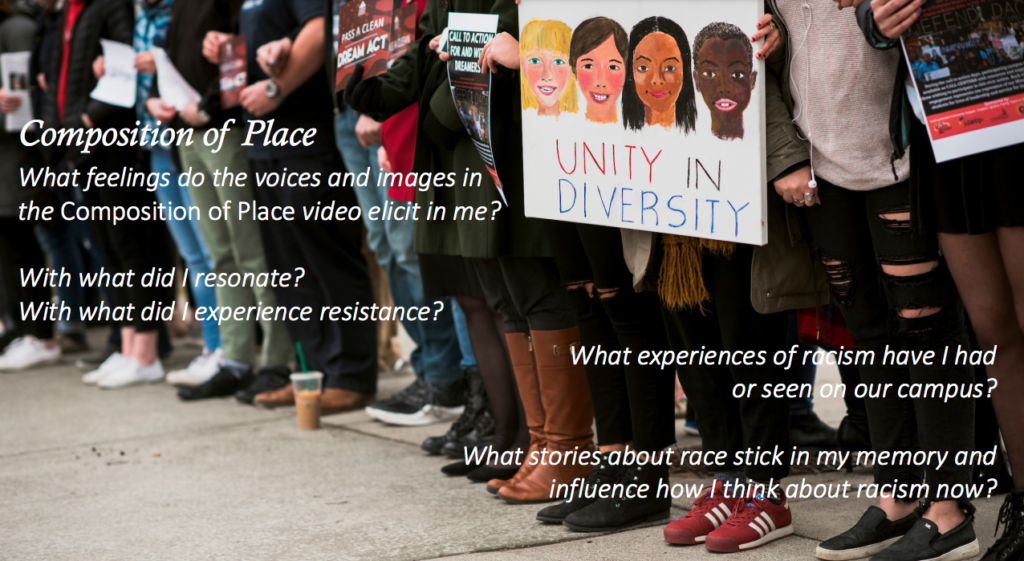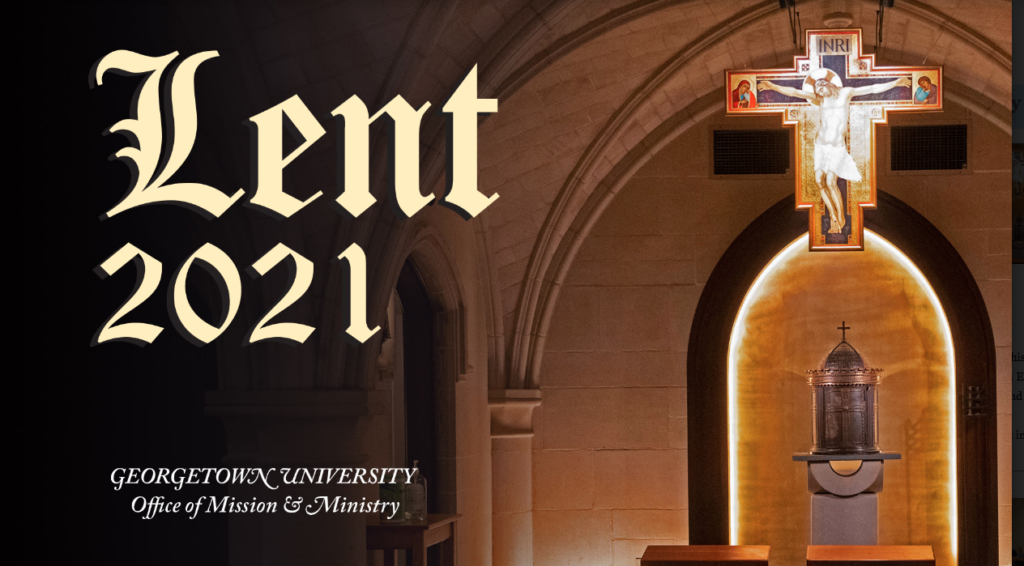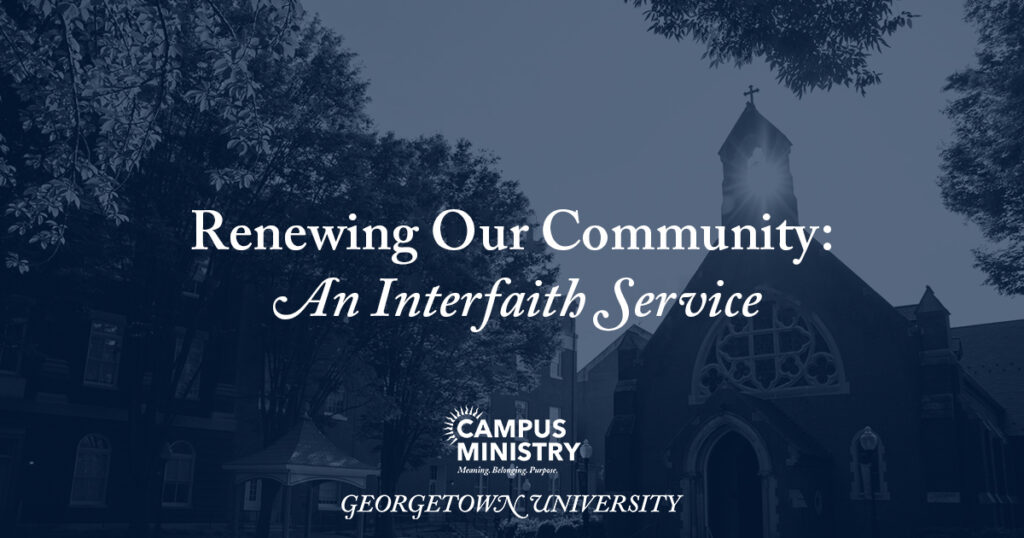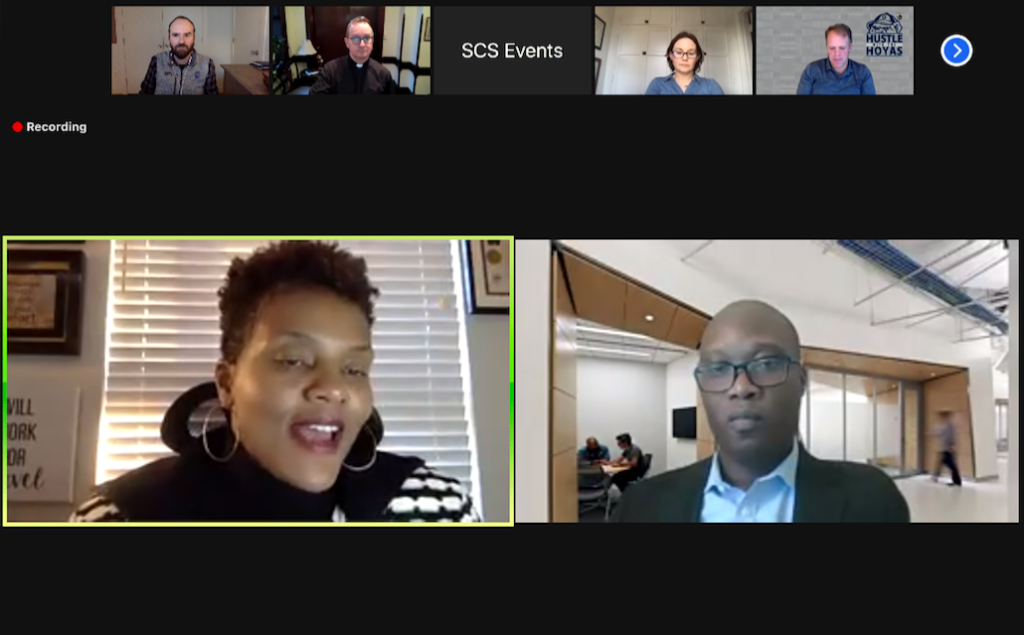This year of living in a pandemic has challenged our university community in unprecedented ways. With grace, patience, and creativity, SCS students, staff, and faculty have upheld the standards of a Georgetown education while navigating difficult circumstances that have required flexibility and new ways of thinking and working. One area of the SCS educational experience that has dramatically shifted is the relationship between student and student advisor.

Meg Cohen, SCS senior assistant dean, offered an insightful set of reflections and guidance this week in a piece entitled, “It’s Been Emotional: How to Manage Difficult Student Interactions.” Meg’s suggestions for how staff can manage challenging situations that involve “heavy emotional burdens” are deeply anchored in our Georgetown Jesuit values. I would like to make some connections between the guidance offered by Meg and the lessons of Ignatian Spirituality that are at the heart of the Spirit of Georgetown.
Give Yourself Permission to Experience Your Emotions: In an advising situation that involves a strong emotional reaction, Meg recommends resisting the urge to react in the moment by taking some time and space to get in touch with the emotions that arise in the advisor. Feeling your emotions is ok and normal, not something to avoid or resist. This lesson connects powerfully with the reflective tool of the Examen. This reverential review of one’s day (presented here) is fundamentally about naming one’s emotions, both positive and negative, consoling and desolating, so as not to be controlled by them. Connecting with one’s emotions is a way of resisting the temptation to be overcome by powerful emotions. These emotions are signals that we should pay attention to. As advisors with busy schedules and heavy loads of students, it might seem difficult to find this time and space in the midst of activity. But Contemplation in Action invites just this kind of reflection for active people. It is in the midst of activity that we ground ourselves in deeper contemplation. Ignatian Spirituality is inherently practical.
Empathize: The progression of responses to an emotionally intense advising situation leads to a shift in mindset grounded in empathy. Meg suggests that the advisor consider the student’s context and what might be happening at a deeper level. This move to empathy is also a move to honoring a student’s context, appreciating that Educating the Whole Person involves attending to all parts of the human person. This is precisely why the Ignatian Pedagogical Paradigm (discussed by Mission in Motion here) begins in Context before moving onto Experience, Reflection, Action, and Evaluation. The student advisor cannot begin to fully assist the student without understanding what is happening in the background of the student’s life. The Ignatian Presupposition (covered here by Mission in Motion), which assumes the best of the other’s intentions, also comes to mind. This is not to say that advisors should see themselves as counselors or therapists. Rather, even the slightest expression of empathy by the advisor can engender trust and mutuality in the student advising experience.
Who Else Needs to Know About This? Meg offers that involving the perspectives of trusted colleagues can help the advisor determine the best response to a challenging situation. This points to the need for community and collegiality in the workplace and in the learning community. It is also a lesson with deep resonance in Ignatian Spirituality. St. Ignatius suggests always consulting with a trusted guide in order to make sense of one’s prayer experience and reflection. Our university mission is ultimately strengthened when students and their advisors feel like they are connected to the entire community.
These lessons, and their connections to the Spirit of Georgetown and Ignatian Spirituality, can apply to all professional interactions. I invite you to consider how you might approach challenging situations, at work and elsewhere, by getting in touch with your emotions, practicing empathy, and consulting others, when appropriate, for guidance about how to proceed.











